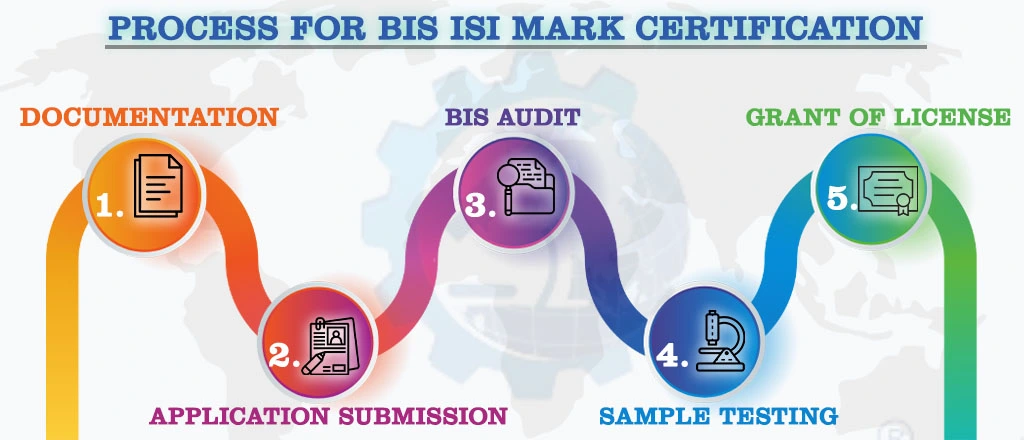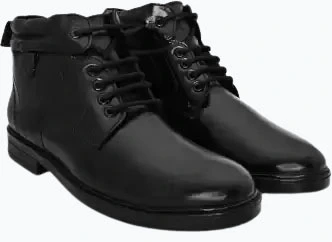BIS CERTIFICATION FOR LEATHER SAFETY FOOTWEAR MOULDED RUBBER SOLE
IS 11226:1993
In this competitive scenario, it isn't easy to survive in the market without a standard quality and certified product. BIS license may also be required to sell products in the Indian market.
To get BIS certification and produce a standard quality product, the manufacturer must ensure that their product must follow the specified Indian standard.
Let's take a closer look at IS 11226:1993 for leather safety footwear having direct moulded rubber sole.
Leather safety footwear having direct moulded rubber sole are covered under IS 11226:1993. The Bureau of Indian Standards adopted this Indian Standard after the Chemical Division Council approved the draft finalized by the Footwear Sectional Committee.
This standard specifies the requirements, sampling methods, and testing procedures for leather safety footwear with steel toe caps and direct moulded rubber soles. Workers in mines, refineries, fertilizer plants, and other places where the working surface is oily may wear the safety footwear covered in this standard.
The leather safety footwear having direct moulded rubber soles shall be three types listed below, depending on their design:
- Type 1 Ankle boots
- Type 2 Jodhpuri shoes
- Type 3 Derby shoes
Leather safety footwear having direct moulded rubber sole must be made from materials that meet the specifications laid out in IS 11226:1993. The material and thickness requirements for various components are specified in the standards. The footwear must be made using either direct vulcanizing or direct moulding process. The footwear sampling scale, method of selection, and conformity criteria shall be as specified in IS 2051: 1976. The various tests specified in the standard must be performed in a properly equipped and staffed laboratory in accordance with the procedures specified in the specification. If the Applicant/Licensee applies for two or more types, testing must be done separately for each type.
TESTS:
- Adhesion test
- Relative Density
- Hardness
- Tensile strength & Elongation at Break
- Workmanship and Finish
- Mass
- Flexing Resistance
- Thickness
- Performance test
The footwear shall be marked with Batch No., Month and year of manufacture, Sizes of the footwear, Trade-mark details as per specified standard. Standard Mark (ISI Mark) may also be applied to the product. The Manufacturer must obtain a BIS license from the Bureau of Indian Standards to use a standard mark (ISI Mark). The Bureau grants a license based on a successful assessment of manufacturing infrastructure, production process, and quality control and testing capabilities during a visit to its manufacturing premises.

NOTE:
For Detailed Information about the Procedure for BIS ISI Certification,
Visit :
ISI Mark Certification for Domestic ManufacturersISI Mark Certification for Foreign Manufacturers
Conclusion:
If a product falls under the scope of the BIS Conformity Assessment Scheme, All the manufacturers, importers, and foreign entities must obtain BIS ISI Certification. The Bureau may cancel the License if the product fails to meet certification requirements.
Aleph INDIA has been serving the industry as a single-window operator for all product regulatory compliance. We can assist importers or manufacturers in meeting all criteria for importing or selling a product in the Indian market.
International Audits & Participation
Testimonials
BIS REGISTRATION FOR ELECTRONIC & IT PRODUCT
In the era of globalization, world trade is growing rapidly and henceforth, Manufacturing and Import/Export businesses are also growing drastically...View More
BIS CERTIFICATE FOR FOREIGN MANUFACTURER
The Economy of India-the fastest developing economy on the globe with the capabilities that help it matches up with the biggest international...View More
PRODUCT CERTIFICATION SCHEME (ISI MARK) FOR DOMESTIC MANUFACTURERS
Anything a person buys from food to cars, clothes to electronics, branded to unnamed products there is always a question that wanders in one’s...View More
WIRELESS PLANNING AND COORDINATION (WPC)
WPC: Wireless means communication done from one point to another point without the wires and cables. Electromagnetic waves carry the ...View More
BUREAU OF ENERGY EFFICIENCY (BEE) CERTIFICATE
BEE CERTIFICATE: Energy is the future, and its conservation is the way of the bright future. Everyone claims the environment is important...View More
E-WASTE MANAGEMENT
E-waste is one of the world's fastest-growing trash streams. We currently manufacture almost 50 million tones of it each year...View More
Request a call back.
Would you like to speak to one of our Senior Technical advisers over the phone? Just submit your details and we’ll be in touch shortly. You can also email us if you would prefer.
BIS REGISTRATION FOR ELECTRONIC & IT PRODUCT
In the era of globalization, world trade is growing rapidly and henceforth, Manufacturing and Import/Export businesses are also growing drastically...View More
BIS CERTIFICATE FOR FOREIGN MANUFACTURER
The Economy of India-the fastest developing economy on the globe with the capabilities that help it matches up with the biggest international...View More
PRODUCT CERTIFICATION SCHEME (ISI MARK) FOR DOMESTIC MANUFACTURERS
Anything a person buys from food to cars, clothes to electronics, branded to unnamed products there is always a question that wanders in one’s...View More
WIRELESS PLANNING AND COORDINATION (WPC)
WPC: Wireless means communication done from one point to another point without the wires and cables. Electromagnetic waves carry the ...View More
BUREAU OF ENERGY EFFICIENCY (BEE) CERTIFICATE
BEE CERTIFICATE: Energy is the future, and its conservation is the way of the bright future. Everyone claims the environment is important...View More
E-WASTE MANAGEMENT
E-waste is one of the world's fastest-growing trash streams. We currently manufacture almost 50 million tones of it each year...View More
View All Services
Request a call back.
Would you like to speak to one of our Senior Technical advisers over the phone? Just submit your details and we’ll be in touch shortly. You can also email us if you would prefer.






























